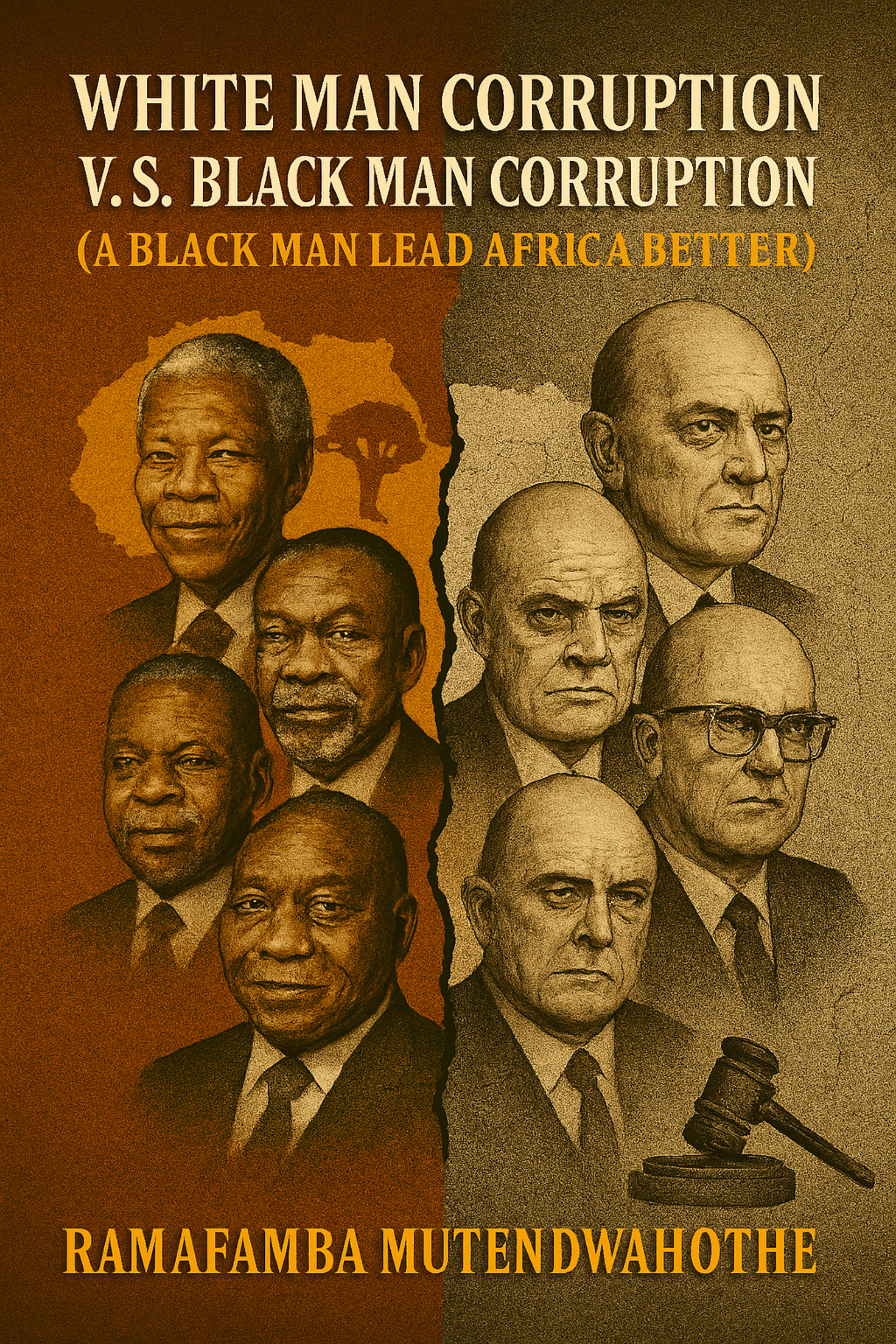
About the Author
Mutendwahothe Ramafamba is a South African activist, political economics scholar, and economic specialist whose work confronts the enduring legacies of apartheid and systemic inequality. Born in a rural Limpopo village, Ramafamba grew up amidst the stark realities of post-apartheid poverty and segregation, shaping his commitment to social justice. He holds an advanced degree in Economics from a leading South African university, where his research focused on the economic mechanisms of corruption and their impact on marginalized communities. With over a decade of activism,
Ramafamba has organized grassroots campaigns advocating for land reform, equitable wealth distribution, and anti-corruption measures, earning recognition from organizations like the Black Economic Empowerment Forum. His economic expertise spans public policy analysis, having consulted for NGOs and published extensively on South Africa’s Gini coefficient (0.63, among the world’s highest) and the economic toll of historical injustices, estimated at R10 trillion in lost black wealth.
Ramafamba’s writings blend rigorous data—drawn from sources like the Truth and Reconciliation Commission (TRC) and Zondo Commission—with a passionate narrative rooted in the lived experiences of black South Africans. As a public speaker, he has addressed forums across Africa, drawing parallels between South Africa’s land dispossession and global cases like Palestine. His activism has faced resistance, including threats from groups opposing his critiques of white capital monopolies and Orania’s separatist practices. Ramafamba’s unique perspective as a scholar-activist informs his argument that black leadership, despite governance challenges, holds transformative potential for Africa by prioritizing redress over oppression. He resides in South Africa, continuing his work to dismantle systemic inequality through education, advocacy, and policy reform.
About the Book
White Man Corruption V.S Black Man Corruption in South Africa (A Black Man will Always Lead Africa Better) is a monumental work that dissects the contrasting dynamics of corruption under apartheid’s white-led regime and the post-1994 ANC government, arguing that black leadership, despite flaws, offers a path toward equitable African progress.
Authored by Mutendwahothe Ramafamba, the book spans three chapters, blending historical analysis, economic data, and case studies to expose corruption’s role in perpetuating South Africa’s segregation and inequality.
Chapter 1 defines corruption—bribery, embezzlement, nepotism, fraud, and extortion—detailing its moral, economic (R500–750 billion annual GDP loss), and social harms (Gini 0.63, 33% unemployment). It contextualizes corruption through colonial land grabs, post-colonial tribalism, and apartheid’s legalized injustices, with global comparisons like Brazil’s Lava Jato.
Chapter 2 examines apartheid’s systemic corruption, including state-sanctioned killings (e.g., Sharpeville 1960, 69 dead), land theft (3.5 million displaced, R10 trillion lost), inflated white salaries (R2 billion/year), and judicial cover-ups (R300 million bribes). Each topic, enriched with eight examples (e.g., Muldergate scandal, R64 million), highlights legalized oppression, drawing parallels to Palestine’s settler colonialism.
Chapter 3 analyzes ANC-era corruption—tenders (R200 billion lost), VBS scandal (R2 billion), state capture (R500 billion, Zondo case)—noting its opportunistic nature versus apartheid’s genocidal design. Six examples per topic (e.g., SIU’s Pretoria ID fraud, R10 million) underscore governance failures.
The conclusion contrasts apartheid’s systemic harm with ANC’s democratic exposure, advocating wealth redistribution and accountability to end segregation. Drawing on TRC, Zondo, and sources like southafricanhistory.com, the book argues black leadership’s focus on redress offers hope for Africa’s future, despite challenges.